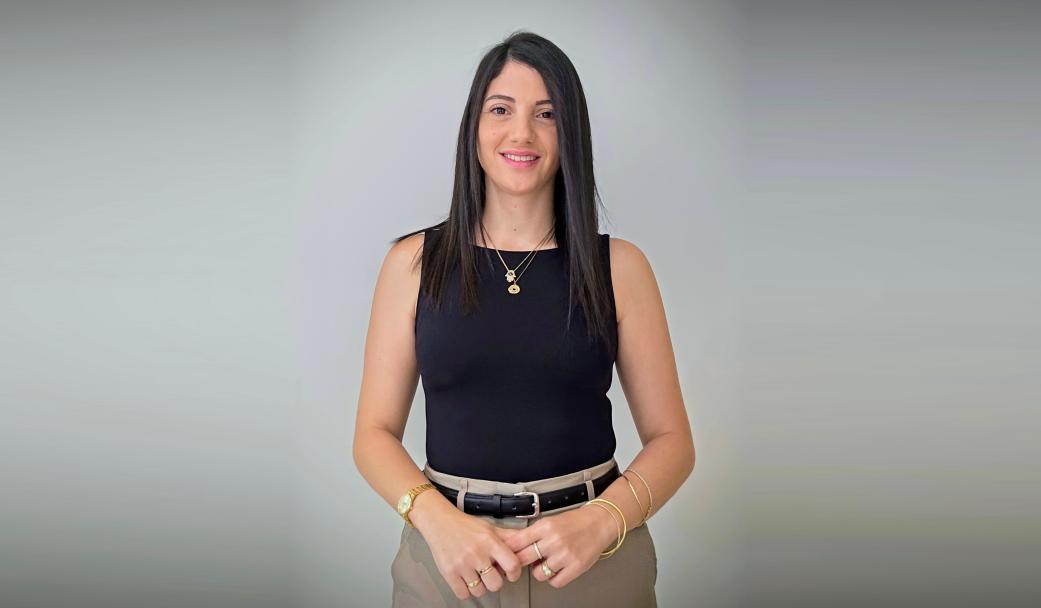Dr. Chen Tzror-Azankot Wins Prestigious Grant and Appointed Research Fellow

Presented by the Committee for Higher Education, the scholarship program integrates outstanding researchers into academia. Dr. Tzror-Azankot joined Prof. Rachela Popovtzer's lab as a research fellow and will continue her research on developing radioactive nanoparticles for cancer treatment
Dr. Chen Tzror-Azankot of Prof. Rachela Popovtzer's lab won the prestigious and highly competitive PBC grant for the integration of outstanding students, offered by the CHE. The program, to which only a few exceptional researchers are selected each year, aims to bolster the ranks of academic researchers in Israel by integrating outstanding PhD researchers as research fellows. They work alongside research group leads and contribute to ongoing research, as well as supervise students and compose research proposals. "While this model is prevalent in many universities around the world, the initiative is fairly new to Israel," elaborates Dr. Tzror-Azankot. "The grant covers a portion of the research fellows' salaries, thereby encouraging universities to incorporate outstanding researchers in such roles."
Prior to receiving the current appointment, Dr. Tzror-Azankot worked at Prof. Popovtser's lab as a postdoctoral fellow after completing her master's and doctoral studies there. "A postdoctoral position is time-restricted and scholarship-dependent, and therefore does not offer long-term stability," she notes. "The PBC scholarship offers me a safe and steady job as a researcher and allows me to contribute to the lab's ongoing operations. This, to me, is the ideal form of employment, and I am grateful for this opportunity."
Scientific work as a mission
Prof. Popovtzer's lab is engrossed in developing innovative nanoparticle-based theranostics technologies, a combination of medical imaging and treatment, emphasizing (but not solely dedicated to) cancer research and treatment. "In my research, which I began as a doctoral student, I develop targeted radioactive nanoparticles. Once injected into the body, they selectively accumulate in cancerous tissue and metastases. Once injected into the body, they selectively position themselves inside cancerous tissue and metastases, thereby enabling treatment via systemic radiotherapy—radiation therapy that is injected into the bloodstream. Unlike conventional external radiation, our innovative method could effectively treat a large number of metastases simultaneously—even microscopic ones that currently cannot be detected via imaging. Radiation focuses on the tumor and destroys the cancerous cells. What we're actually doing is using the cancer cell's distinguished properties to locate it rather than its location in the body," she explains.
Thanks to the scholarship, Dr. Tzror-Azankot is now a fellow researcher at the university. She will be able to expand her research, advance the research group's projects, supervise students and initiate new collaborations. "I truly love research and the academic work environment," she shares. "Every research at Rachela's lab hits the core of reality, with distinct medical significance and a true goal: to improve life. To me, this is not just scientific work; it's my mission. I enjoy the freedom to dream and create, the challenge of finding innovative ideas to complex problems, and the profound satisfaction of making dreams into technologies that could someday give patients hope and a new lease on life."
Dr. Tzror-Azankot has a few words to add: "I wish to thank the PBC for the prestigious scholarship; Bar-Ilan University for their support; and Prof. Rachela Popovtzer, my mentor and companion, for being there for me, steering me in the right path, and being the inspiration that got me to this point."
Last Updated Date : 24/08/2025



